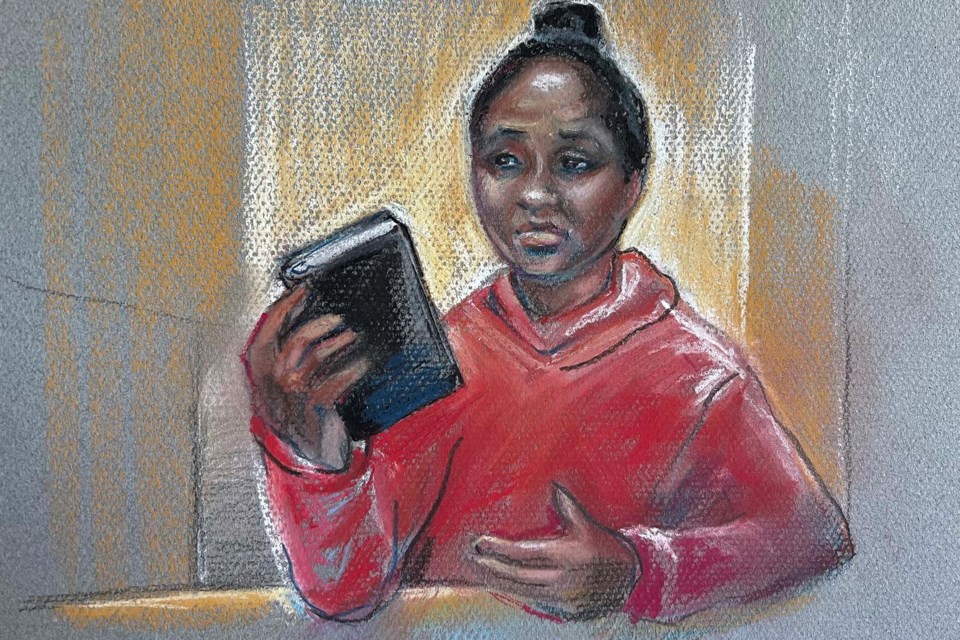Stacey Worsfold has worn blue clothing every day in court since the nine-week trial for her father’s murder began this spring. It was Ronald Worsfold’s favourite colour.
Beryl Musila, the 34-year-old woman who murdered Ronald Worsfold, received a life sentence on Sept. 28 for the murder. Now Stacey Worsfold, who doesn’t ordinarily wear blue, said she has a closet full of blue clothes that she doesn’t know what to do with.
At the Court of King's Bench Musila received a life sentence with no parole eligibility for 25 years, minus time served since she was placed into custody in 2017. That leaves roughly 19 years left in the sentence before she can apply for parole. She pleaded guilty to the charge of indignity to human remains at the outset of the trial and last Thursday was handed a sentence of 2.5 years, less 30 days, which will be served concurrently with her life sentence.
Musila pleaded not guilty to the murder charge but was found guilty of first-degree murder in June.
“I am so grateful,” Stacey Worsfold said. "This is a rare case where the courts did their job, got it right — we got the conviction and we got the maximum sentence.”
Stacey Worsfold told reporters that she does not believe Musila feels remorse for murdering her dad.
“If I could get that remorse and some accountability, I could forgive her then, but without truth there can never be forgiveness,” she said.
Throughout this week’s sentencing, Musila appeared forlorn — nodding as victims read their impact statements, staring at the ground and occasionally brushing at her eyes with tissues.
Justice Larry Ackerl did not provide a decision for the life sentence as 25 years without parole eligibility is mandatory for a first-degree murder conviction. However, he did decide on the indignity to human remains charge.
In his decision, he noted Musila’s two sons, aged nine and 11, her troubles with anxiety, depression and post-traumatic stress disorder, and her drug addiction.
He called her disposal of Worsfold’s body calculated and said she raised false hopes and caused distractions during the investigation.
However, he said Musila showed potential for rehabilitation. She appeared organized, articulate and intelligent as she defended herself in court, he said.
Musila murdered Worsfold in July of 2017. She drugged the 75-year-old with Ativan and then, prosecutors argued, in a panic because she thought she had overdosed Worsfold, stabbed him with a knife and beat him with a hammer.
She packed his body into a Rubbermaid tote container, drove with it to multiple locations and ultimately left it in the woods on a friend’s rural property near Devon.
The exact reason for the murder is unclear; however, prosecutors argued that it could have been that Musila did not want to sleep with Worsfold or she wanted to steal his sports memorabilia.
It took almost six years for the trial to begin as Musila delayed the case by firing multiple lawyers before ultimately representing herself.
Outside the Edmonton Law Courts, Stacey Worsfold told reporters a great weight had been lifted from her shoulders.
“I remember [my father] every morning when the blue jays come to get their peanuts," she said. "I remember him every time we have a thunderstorm, because we used to sit on his balcony and watch the lightning and listen to the thunder rolling through next to the grain elevators…. His memory [is in] so many places we visit on a daily basis.”



